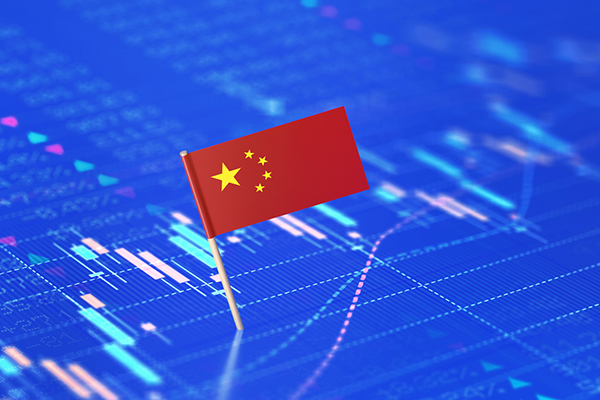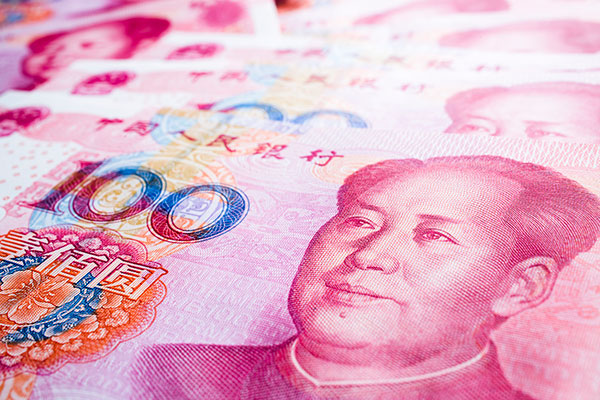Will the recent China rally be a flash in the pan?
Does the recent upswing in performance for China’s stock market have further to run? Faith Glasgow weighs up reasons to be bullish and bearish.
26th November 2024 09:00

China is inherently a challenging proposition for many professional investors. While they concur that there are many innovative and well-run Chinese businesses, their biggest concerns generally revolve around the ongoing troubles of the property sector, the autocratic and unpredictable Chinese government, and ongoing geopolitical tensions – which are likely to ramp up further with the return of Donald Trump to the US presidency.
- Invest with ii: Buy Investment Trusts | Top UK Shares | Open a Trading Account
Overbearing regulation has already hit China’s technology and education sectors hard in recent years, worrying investors such as Peter Hewitt, manager of the multi-manager CT Managed Portfolio Trust.
Political risk
Hewitt warns: “With an authoritarian government, you never know what will be next in terms of restrictive actions against companies or sectors.
“The Chinese government has form in this area, so it is a matter of when, not if, there are further actions. For me, that rules out holding a specialist Chinese investment trust.”
Hewitt prefers to get limited and flexible China exposure through a broad Asia or emerging market fund, looking for “a significant underweight relative to the benchmark index”.
But how far is such a wide berth justified? Could recent policy announcements and September’s associated stock market rally be a harbinger of better days to come for patient China-watchers? And how could the Trump effect play out in reality?
Policy moves aimed to boost shares and property
It’s undoubtedly the case that China’s post-Covid economic slowdown has been wide-ranging and persistent. Edmund Harriss, chief investment officer at Guinness Global Investors, explains it has been underpinned by draconian Covid lockdowns, a policy-induced real estate slowdown and local government funding shortages as land sales dried up.
“In recognition that the government’s 5% GDP growth target this year may not be reached, there has been a series of significant policy moves,” says Harriss.
The first tranche of these monetary stimuli, in late September, was aimed at tackling deflation and boosting the property and equity markets. It included changes to policies on second-home deposits and mortgage rates, plus a social housing policy to reduce the number of unsold properties. Interest rates were cut by 0.5% and further cuts promised, and there were also measures to support share buybacks. Those initiatives produced a welcome market rally, with some China funds delivering 20%-plus returns in September.
- Why is China’s stock market soaring, and will it last?
- 20%-plus returns over one month for top funds in this sector
The most recent policy announcement, on 11 November, introduced a huge five-year debt swap programme for heavily indebted local governments.
As Nicholas Yeo, head of China equities at abrdn, observes, this could enable them “to pay salaries and invest in economic development, without resorting to fire sales of assets or squeezing corporations with penalties and back taxes just to discharge their debt obligations”. Yeo describes this reduction of local government debt as a crucial move to get local economies moving.
Investors, however, were looking for more consumer-oriented announcements – and the result, as Harriss puts it, has been “an expectations mismatch”.
He explains: “The market is looking for a large and immediate consumer boost similar to the post-2008 package. The government is looking at longer-term structural changes. The big number has appeared ($1.6 trillion, of which $0.8 trillion is new money), but not as a direct consumer injection.”
China concerns
At Kepler Partners, research analyst Ryan Lightfoot-Aminoff agrees that the government’s targets for stimulus don’t seem to match the market’s hopes and expectations.
“We would caution that the Chinese government repeatedly mentions its 'common prosperity’ goal when announcing measures, which may not align with the hopes of outside investors,” he points out. That’s been reflected in the fact that state-owned enterprise stocks rather than those of private businesses have enjoyed the biggest boost since the stimuli announcements began.
Additionally, there are concerns that China may be reluctant to risk over-stimulating the economy in case it results in more of the price bubbles that have caused problems in the past (property being an obvious example).
However, China-watchers think there is likely to be more policy news to come. Yeo suggests that direct policies to boost domestic consumption and support the property sector may be held back until government meetings in December and March.
“We anticipate more fiscal support and structural reforms to come through in 205, as failure to provide additional stimulus could harm China’s policy credibility and risk a deflationary loop,” he says.
Harriss agrees that what’s already been done is significant and “could well be augmented,” pointing to recent better-than-expected manufacturing confidence measures as evidence that economic conditions in China may be improving. But it’ll take time for the market to absorb the changes and reflect them in share price improvements.

Trump poses question mark
So far, despite the recent rally, share price valuations remain “compelling” relative both to history and to global peers, says Dale Nicholls, manager of Fidelity China Special Situations (LSE:FCSS) investment trust. Moreover, although the overall earnings outlook is not bad in a global context, with improvement in some areas such as technology, the general trend of earnings revisions has been downward.
“The hope would be that these latest policies can help drive a turn in economic fundamentals, leading to an improved earnings outlook,” he explains. “Such a virtuous circle should drive a sustained improvement in market sentiment and an upward re-rating in valuations.”
Of course, the re-election of Donald Trump poses an additional question mark in assessing China’s prospects. Trump has made clear that he plans to impose higher tariffs of up to 60% on Chinese imports into the US, as part of the drive to “make America great again”.
That is unsettling, particularly for internationally traded shares such as those listed on the MSCI China index. However, Chinese exporters are less reliant on the US market than they used to be. These companies have already had to develop alternative trading routes and destinations as a result of the first Trump trade war in 2018.
In fact, some commentators argue that Trump’s actions could actually be the kick Beijing needs to refocus and boost domestic growth through more aggressive stimulus measures.
“History suggests that the ‘Trump bad for China’ narrative isn’t necessarily enough to drive equity returns in the long run. In fact, we see domestic issues as the most important driver of Chinese equities,” Yeo observes.
Reasons for optimism
The domestic A share market is more insulated from the US election fallout, and is therefore likely to be a purer reflection of the success or otherwise of China’s policy efforts, says Harriss. “We think that those companies most exposed to China’s domestic economy will do best,” he says.
Lightfoot-Aminoff points out that the problem is not so much that Chinese consumers don’t have the wherewithal to spend, but that they lack confidence because of weakness in the housing sector. “If the measures announced do prove supportive to house prices - a big store of wealth in China - then that could feed through to support the economy,” he adds.
There are undoubtedly rich pickings for contrarian stock pickers. Nicholls highlights that “significant innovation continues apace across a range of sectors, reflecting companies’ commitment to strengthening competitiveness and improving pricing power”.
He adds: “Despite a relatively weak domestic environment, we are seeing companies remain committed to investing in research and development in areas like renewables, the electric vehicle value chain, automation and healthcare.”
- Run your winners or take profits? How the pros decide
- The sectors the pros are watching after US election
Sven Borho at Worldwide Healthcare Ord (LSE:WWH) Trust also picks out China’s healthcare industry as a favoured hunting ground, although he has reduced exposure because of growing geopolitical risk. He points to the size of the domestic market, the ageing population, growing demand and government support to improve healthcare provision.
“More recently we have also discovered the incredible innovation coming out of China in this space, with drug discovery and development to rival and sometimes surpass Western counterparts,” Borho adds.
The bottom line, it seems, is that while US tariff uncertainties are concerning, Chinese equities are less closely correlated to global macro trends than in previous years, and should benefit from government policy measures over time.
These articles are provided for information purposes only. Occasionally, an opinion about whether to buy or sell a specific investment may be provided by third parties. The content is not intended to be a personal recommendation to buy or sell any financial instrument or product, or to adopt any investment strategy as it is not provided based on an assessment of your investing knowledge and experience, your financial situation or your investment objectives. The value of your investments, and the income derived from them, may go down as well as up. You may not get back all the money that you invest. The investments referred to in this article may not be suitable for all investors, and if in doubt, an investor should seek advice from a qualified investment adviser.
Full performance can be found on the company or index summary page on the interactive investor website. Simply click on the company's or index name highlighted in the article.
Editor's Picks